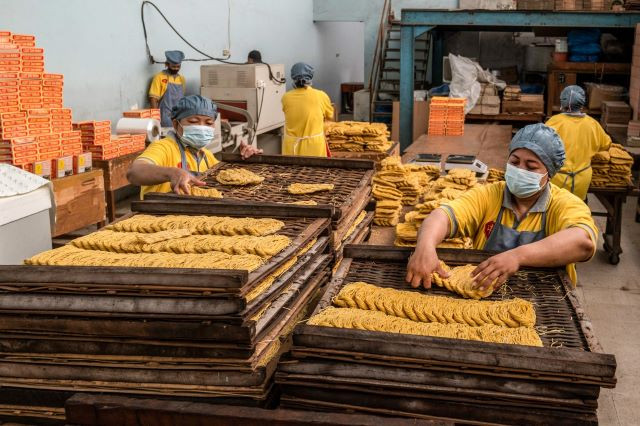Popular Reads
Top Results
Can't find what you're looking for?
View all search resultsPopular Reads
Top Results
Can't find what you're looking for?
View all search resultsAlcohol on an open wound: Transgender Indonesians struggle through pandemic
Though they have grown accustomed to living under constant discrimination and danger, transgender Indonesians find it exceedingly difficult to survive during the pandemic.
Change text size
Gift Premium Articles
to Anyone
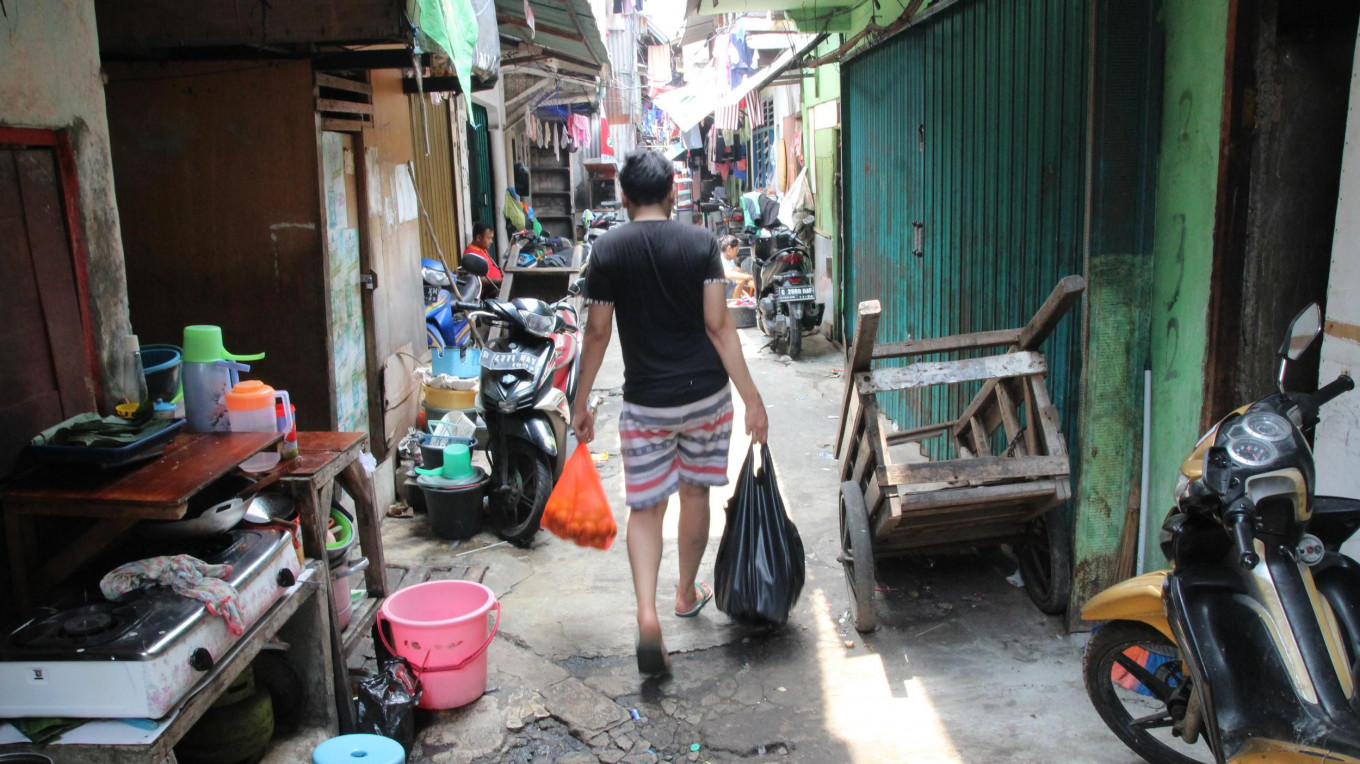
“I will never forget what she said to me,” Amek Adlian said, mimicking a transgender woman he met in the streets of Medan, North Sumatra. “Abang, I’ve stared down bandits with machetes. COVID is no big deal!”
Even a seasoned trans rights activist like him was taken aback by the flippant reply.
“There was nothing I could do to help her,” the 32-year old sighed. “Staying home means starving. Staying safe means dying.”
Amek forced a laugh, but his desperation was evident. Even before the COVID-19 pandemic hit, trans people were already living with economic precarity, violence and discrimination.
The pandemic, said a report by the Indonesian Transgender Network (JTID), simply “poured alcohol on an open wound”.
“We actually face many similar problems as other working-class people,” explained Rebecca Nyuei, 28, a trans activist at the JTID. “But the additional layer of discrimination turned this into multiple crises.”
The Specter of economic ruin
The first thing they lost was economic security. Due to structural discrimination and a common history of familial and societal violence, most trans people in Indonesia are unable to access higher education and high-income jobs. Therefore, they must rely on blue-collar jobs to sustain themselves. Most trans men, according to Rebecca, worked as online ojek (app-based motorcycle taxi) drivers, while trans women typically work in hair salons or as sex workers and buskers.
When social distancing rules were first enforced nationwide in March 2020, trans people were pushed into economic ruin almost overnight. According to a recent report by the JTID, the proportion of trans people with steady incomes has dropped from 95 percent to 70 percent during the pandemic. Their average income also dropped 58 percent across the board, from an average of Rp 4.3 million (US$308) per month before the pandemic to just Rp 1.8 million per month.
“Transwomen from my neighborhood started complaining that they were only making Rp 35,000 or Rp 50,000 a day,” said Mama Atha, 52, a community activist working in the dilapidated neighborhood of Tambora, West Jakarta. “I couldn’t do anything because I only had Rp 5,000 to my name myself!”
Many had to rely on handouts or loans from family members and friends, or simply sold off whatever few possessions they had. Meanwhile, they continued to work in high-risk situations, evading authorities, skirting social distancing regulations and risking exposure to the virus.
Despite this, scarcely any government help has made it their way. The JTID attributed it to the government’s ignorance of the plight of trans people but concedes that there’s a deeper issue at hand. Due to familial conflict and discrimination, a majority of trans people still don't have a proper ID and are, therefore, excluded from government aid programs.
Help almost exclusively comes from NGOs or lesbian, gay, bisexual and transgender (LGBT) communities relying on individual donors. Through his organization, Cangkang Queer, Amek has distributed foodstuffs and medicine to 540 trans people in various regencies around North Sumatra. While with the support of the Queer Language Club and Sanggar Seroja, Mama Atha operates a soup kitchen out of her house, serving food to hungry trans people around her neighborhood.
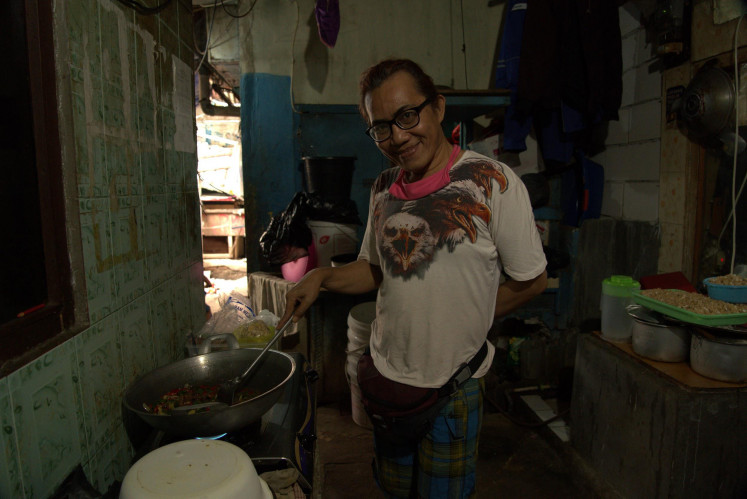
However, like all community-run initiatives, these aid programs face issues of sustainability.
“In North Sumatra, trans people’s main source of income was performing in parties and various small performances,” Amek explained. “When the pandemic hit, they had nothing. It was difficult for us to help them because many lived in remote places. Our resources were limited.”
Mama Atha’s soup kitchen also had to close down in May 2020 after it was accused of violating social distancing regulations.
“We then decided to give away foodstuffs like rice, canned sardines and tea,” she said. “But distributing aid was difficult. Some neighborhoods enforced local lockdowns, padlocking alleyways and blocking access to outsiders. It was difficult to reach some of our friends who needed help.”
A medical crisis
As medical facilities became inundated with COVID-19 cases, many of the medical needs of trans people were also underserved.
“During the pandemic, a lot fewer trans people were able to access hormonal therapy as part of their gender transition process,” explained Rebecca. “It was also difficult for trans people with HIV/AIDS to access antiretroviral [ARV] medication.”
Being diagnosed with COVID-19 also means a world of complications. Amek and Rebecca, both recently recovered from COVID-19, recalled their convalescence with dread.
“When my diagnosis first came in, my biggest fear was simply having to share a room with somebody else,” said Rebecca.
Despite their gender identity and outward appearance, trans people who do qualify for state-subsidized medical aid are assigned dorms at government isolation facilities according to the sex stated on their ID cards, not based on their gender identity. This meant that transwomen are placed in male facilities, and vice versa.
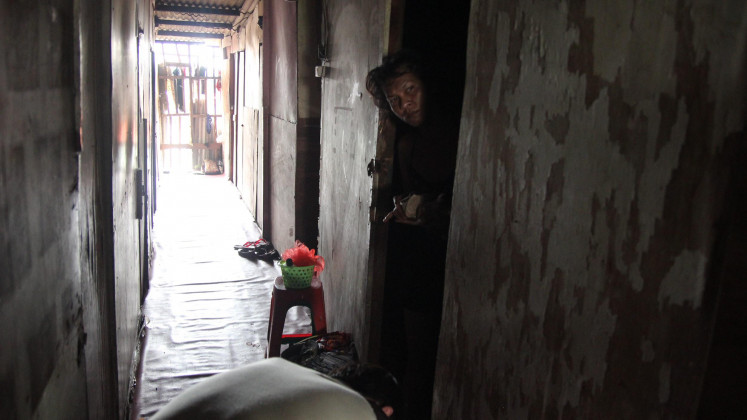
Both Amek — a transman — and Rebecca lobbied to be placed in a room alone. But while Rebecca got her wish, Amek had to isolate in a room with a friend and another woman in Wisma Atlet Kemayoran, the main COVID-19 isolation facility in Jakarta.
“Everybody was talking about the gay medical worker who had an affair with a COVID patient there,” Amek said. “We were afraid of being outed.”
It didn’t help that the woman he shared the room with was less than welcoming.
“One time, I caught her telling a relative over the phone that LGBT people won’t repent unless tragedy befalls them,” Amek recalled. A day later, the patient disappeared, apparently requesting a move to another room.
“I was glad she had gone,” Amek sighed. “I just wanted to recover.”
Assigning trans people to dorms based on their ID, not their gender identity, also means it’s almost impossible to truly gauge the number of trans COVID-19 patients in Indonesia.
“Our database only recognizes male and female patients,” complained Rebecca. “So, we don’t actually know how bad the pandemic truly is in our community.”
Luckily, medical workers generally treat trans patients with respect.
“They were respectful and understanding of our situation,” recalled Rebecca. “Most tried their hardest to secure a room where we could convalesce alone. They did what they could in a difficult situation.”
After the quake
As the pandemic wears on and large-scale social restrictions (PSBB) fluctuate, trans people are left in limbo. Many community aid initiatives have either lost momentum or funding, while income instability persists for many.
After a promising start, Mama Atha’s aid program petered out around August 2020 after PSBB measures were relaxed and many trans people returned to their jobs. However, she conceded that the threat of another strict PSBB loomed over many people.
“Everything is still running at 50 percent,” she said. “If they tighten the social distancing rules again, we’re basically back to square one.”
Her hair salon, the main source of income for her and many transwomen around her neighborhood, has yet to open. She sustains herself by selling pandan cakes and sweet treats, supported by a small grant by Sanggar Seroja.
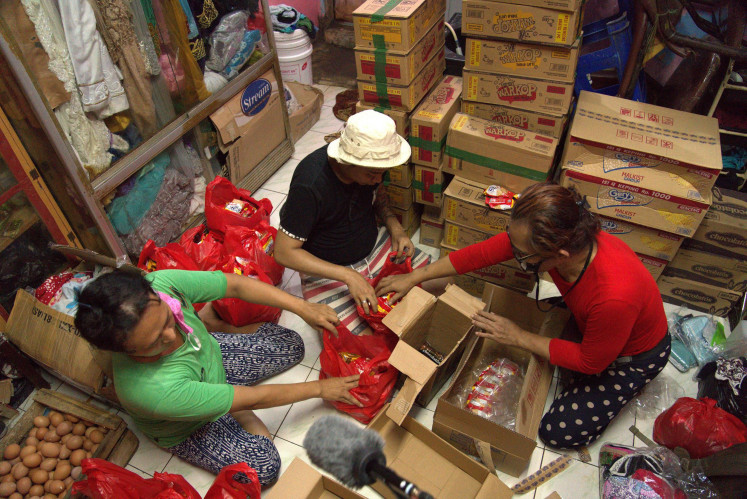
Even as they return to work, trans people have to face potential violence.
“We have received reports that local police officers sometimes forcibly raid parties and events,” said Amek. “They ask for money from the bandleaders. A lot of trans people fear this and instead turn to sex work to survive.”
Amid the uncertainty, the only way to make a living is by hustling in the streets.
“A trans neighbor of mine got mad because everybody called her the Corona Queen,” recalled Mama Atha, giggling. “But I told her to be patient. These are desperate times, after all.”







